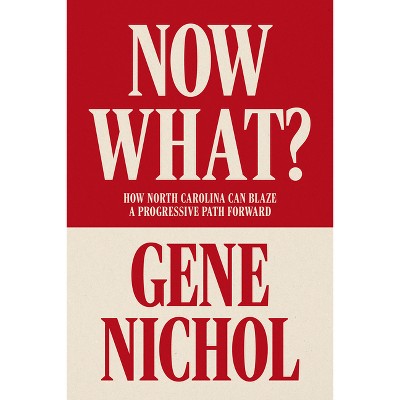Sponsored

On Time - by On Barak (Paperback)
$29.95
In Stock
Eligible for registries and wish lists
Sponsored
About this item
Highlights
- In this pioneering history of transportation and communication in the modern Middle East, On Barak argues that contrary to accepted wisdom technological modernity in Egypt did not drive a sense of time focused on standardization only.
- About the Author: On Barak is Senior Lecturer in Middle Eastern history at Tel Aviv University.
- 360 Pages
- History, Middle East
Description
About the Book
Revised version of the author's dissertation--New York University, 2009.Book Synopsis
In this pioneering history of transportation and communication in the modern Middle East, On Barak argues that contrary to accepted wisdom technological modernity in Egypt did not drive a sense of time focused on standardization only. Surprisingly, the introduction of the steamer, railway, telegraph, tramway, and telephone in colonial Egypt actually triggered the development of unique timekeeping practices that resignified and subverted the typical modernist infatuation with expediency and promptness. These countertempos, predicated on uneasiness over "dehumanizing" European standards of efficiency, sprang from and contributed to non-linear modes of arranging time.Barak shows how these countertempos formed and developed with each new technological innovation during the nineteenth and early twentieth centuries, contributing to a particularly Egyptian sense of time that extends into the present day, exerting influence over contemporary political language in the Arab world. The universal notion of a modern mechanical standard time and the deviations supposedly characterizing non-Western settings "from time immemorial," On Time provocatively argues, were in fact mutually constitutive and mutually reinforcing.
From the Back Cover
"On Time's primary contribution is to offer the first study of modernity in the Egyptian context that attends to the new technological modes by which that distinction in temporality was historically produced. This approach departs from the largely nation- and human-centered narratives of Egyptian history. By focusing on non-human agents and using a trans-regional perspective, a larger cast of actors and other vectors of historical change come into view. This work will advance both historical and critical efforts to de-center secular, pietistic accounts of our shared modern past, whether those pieties belong to civilizations, empires, nation-states, or humankind."--Wilson Jacob, author of Working Out Egypt: Effendi Masculinity and Subject Formation in Colonial Modernity, 1870-1940 " [On Time] constitutes a fascinating contribution to a growing field of inquiry - namely, the social construction of time in colonial contexts. Through a close reading of a breathtaking variety of sources, ranging from newspapers to fatwas, from advice books to train schedules, On Barak develops a compelling narrative of how Egyptians, through the nineteenth and twentieth centuries, developed what he calls 'counter-tempos' - approaches to apprehending and navigating the 'homogenous, empty' time of Western modernity in profoundly subversive ways."
--Paul Sedra, author of From Mission to Modernity: Evangelicals, Reformers and Education in Nineteenth-Century Egypt "On Time is a compelling argument about the institutionalization of modern temporality in Egypt, the subjectivities and attitudes it fostered, and the resistances it encountered. With a creative flourish, Barak renders time immanent in this book by tracking its transformation through the use of new technologies (clocks, telegraph, calendars, railways, trams, telephones) all of which in turn changed how Egyptians thought about themselves and related to each other. Through a keen playful analysis of culture, capitalism, and modernity, Barak reminds us how we are made and unmade in time."
--Saba Mahmood, author of Politics of Piety: The Islamic Revival and the Feminist Subject
Review Quotes
"A book of impeccable scholarship."-- "American Historical Review"
"On Time provides a fascinating read, rich with vivid historical accounts that make the author's arguments all the more striking and memorable."-- "Technology and Culture"
About the Author
On Barak is Senior Lecturer in Middle Eastern history at Tel Aviv University. He is the author of Names Without Faces: From Polemics to Flirtation in Islamic Chat-room Nick-naming (Uppsala University Press, 2006).Dimensions (Overall): 8.9 Inches (H) x 5.9 Inches (W) x .9 Inches (D)
Weight: 1.1 Pounds
Suggested Age: 22 Years and Up
Number of Pages: 360
Genre: History
Sub-Genre: Middle East
Publisher: University of California Press
Format: Paperback
Author: On Barak
Language: English
Street Date: July 19, 2013
TCIN: 91570475
UPC: 9780520276147
Item Number (DPCI): 247-30-6353
Origin: Made in the USA or Imported
If the item details aren’t accurate or complete, we want to know about it.
Shipping details
Estimated ship dimensions: 0.9 inches length x 5.9 inches width x 8.9 inches height
Estimated ship weight: 1.1 pounds
We regret that this item cannot be shipped to PO Boxes.
This item cannot be shipped to the following locations: American Samoa (see also separate entry under AS), Guam (see also separate entry under GU), Northern Mariana Islands, Puerto Rico (see also separate entry under PR), United States Minor Outlying Islands, Virgin Islands, U.S., APO/FPO
Return details
This item can be returned to any Target store or Target.com.
This item must be returned within 90 days of the date it was purchased in store, shipped, delivered by a Shipt shopper, or made ready for pickup.
See the return policy for complete information.

















